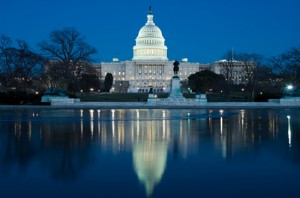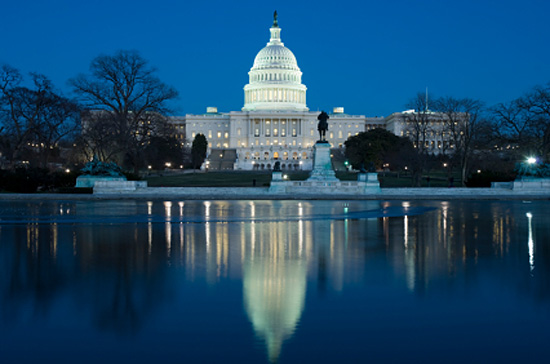 By Kevin G. Hall, McClatchy Newspapers –
By Kevin G. Hall, McClatchy Newspapers –
WASHINGTON — The Obama administration Wednesday unveiled its framework for overhauling the corporate tax code, offering an election-year proposal that would pay for a sharp reduction in the broad rate — from 35 percent to 28 percent — by taking away tax breaks enjoyed by the energy sector and big corporations.
Because prospects are slim for any comprehensive tax legislation before November’s presidential election, the plan put forth by Treasury Secretary Timothy Geithner was as much about political choices as policy ones.
“The last time we fundamentally reformed the business tax code was more than 25 years ago. That was before the Internet, before cellphones, before the rise of China and other emerging markets … and before a global trend to lower the corporate tax rates around the world,” Geithner said at a news conference. The U.S. tax code was last overhauled in 1986 and has been tinkered with constantly ever since.
There’s broad consensus in both major parties that the corporate tax code is antiquated and leaves U.S. companies at a disadvantage to their foreign competitors. What to do about it is a harder question. Although most corporations don’t pay the highest nominal rates because they exploit tax credits, loopholes and deductions, U.S. corporate tax rates are unusually high.
Sounding a theme that President Barack Obama voices often on the campaign trail, Geithner said the White House plan sought fairness and balance. Under the current tax code, some industries do better than others. The goal, Geithner said, is to rebalance the code to be fairer to all.
Lowering the corporate tax rate from 35 percent rate — among the highest globally — to 28 percent would put it roughly in line with that of other major economies. Most lawmakers and business groups support that.
The administration gave no estimate of how much revenue it would cost the Treasury. The congressional Joint Committee on Taxation said last fall that such a cut would cost the Treasury $700 billion over 10 years, but its estimate was preliminary and incomplete.
To offset some of the lost revenue, the administration proposes to end a number of long-standing tax breaks for oil and natural gas production. That would raise $250 billion over 10 years, according to the administration, but repealing these breaks will be difficult, given industry lobbying and a House of Representatives that pro-business Republicans control.
Obama’s most controversial provision would create a minimum tax on overseas earnings. It would require foreign subsidiaries of U.S. corporations to be subjected to some minimum tax — not yet defined — to discourage relocation abroad. Japan has a version of this, but most industrialized economies don’t tax overseas earnings.
“That’s a real problem, because it’s no secret that 95 percent of the world’s customers are not in the United States,” said Dorothy Coleman, the vice president of tax and domestic economic policy for the National Association of Manufacturers.
The association says that taxing foreign earnings would disadvantage American firms abroad. “That makes it much more difficult for them to compete with overseas competitors, and in some cases prices them out of the market altogether,” Coleman said.
Obama issued a statement after Geithner’s news conference that addressed why he wants to tax overseas corporate earnings.
“Our current corporate tax system is outdated, unfair and inefficient. It provides tax breaks for moving jobs and profits overseas and hits companies that choose to stay in America with one of the highest tax rates in the world,” his statement said.









